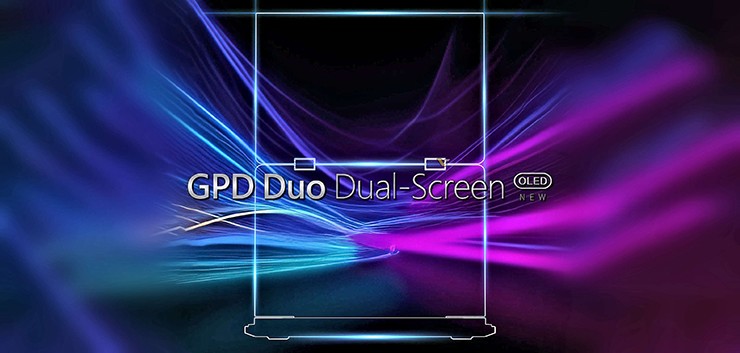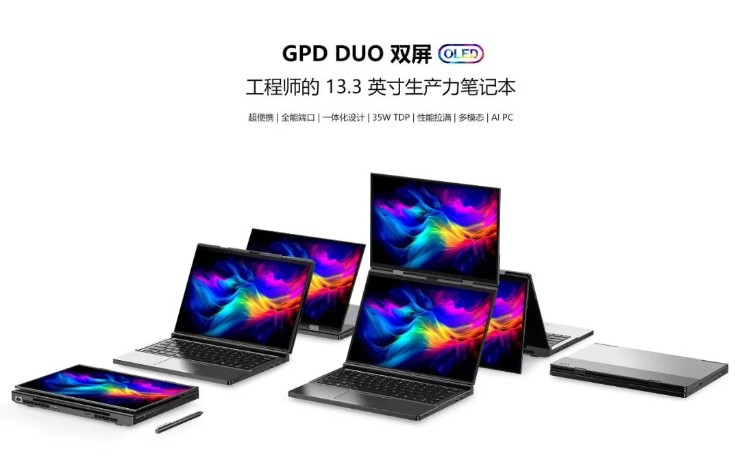GPD, known for its miniature PCs, is planning to produce a regular-sized laptop with an OLED display.
After years of making portable gaming PCs and miniature mobile PCs, GPD is now turning its attention to full-sized laptops. After teasing a dual-screen laptop last week, GPD has now released images of the upcoming GPD Duo, complete with two 13.3-inch OLED displays, plenty of ports, and stylus support.
Information posted on page X of GPD.
While dual-screen laptops have been around for a while, the GPD Duo looks to be the most practical. GPD is stacking two 13.3-inch OLED panels to give users a secondary display on top, a similar idea to Asus' new ZenBook Duo. What's interesting about the GPD Duo, however, is that its design doesn't require a detachable keyboard or kickstand, so the second screen folds behind the main display to look like a regular laptop.
The second screen on the GPD Duo can also be folded into a tablet form with support for stylus input. According to the company, the device is about the size of an A4 sheet of paper when folded, and when both screens are fully extended, it measures 18 inches. The display supports 10-point touch, 4096 levels of pressure sensitivity for the stylus, and Microsoft Pen protocol for compatibility with the Surface Pen.
While GPD doesn't list the ports on the Duo, it looks like the device will have an Ethernet port on the back, along with an OcuLink port for connecting an eGPU. There are at least two USB ports on the side, and what appears to be some form of card reader along the left side of the laptop. There are a few other ports shown in the image, but it's difficult to tell exactly which ones are included due to the low resolution.

The product is different from many previous dual-screen laptops.
The GPD Duo will have a full-size keyboard and a regular touchpad, setting it apart from Lenovo's Yoga Book 9i, which ships with a separate Bluetooth keyboard that users place on the second screen.
It’s still unclear what CPU will power the GPD Duo, other than vague mentions of a 35W TDP and being an “AI PC.” That said, it’s unlikely to be a Copilot+ PC with Qualcomm’s latest Snapdragon chip. With Computex less than a week away, more information on the product could come soon.
In particular, the product has a new feature that takes advantage of the advantage to make Copilot more useful. Using Copilot and Phone Link on the Galaxy Book4 Edge will allow users to fully control their phone through natural language generated by AI. So, let's say a user wants to text someone or set a map to the next location on their phone, it can all be done through natural language on the PC.
Of course, that's just the beginning of a growing number of developers starting to build tools based on Copilot and harness the NPU power of these laptops.


